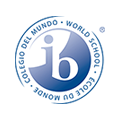Language Policy
AIS Language Policy
Date reviewed May 2021
|
i) Philosophy All teachers are defined as language instructors, and as such we are committed to provide a learning community that promotes and supports the development of Cognitive Academic Language Proficiency (CALP) in an environment diverse with language and culture. We will continuously attempt to create an environment that fosters confident, creative and responsible language learners through inquiry based instruction. We recognise that each student is at some stage of development in one or more languages. Language is a part of a cultural identity and embraces the student's individual heritage. Our responsibility is to endeavour to safeguard these aspects of our diverse community. ii) Purpose of language policy
iii) Languages of Instruction English in the IB programmes Our objective is for students to develop skills in the main subject areas - Mathematics, Social Studies, the Arts, Sciences and Physical Education - through English. Starting in Grade One, the classroom is an English immersion environment and differentiation is facilitated based on student’s assessed language needs. Our Language Scope and Sequence implements strands from various national curricula, the IB Scope and Sequence documents and the Norwegian national curriculum. This learning environment is scaffolded to support students who have English as an additional language. Should individual students’ command of the English language still be insufficient, additional student support will be considered while parents and other school service organisations may be involved. British English is acknowledged as the most valid form of the language but American English will be acknowledged and taught should the class contain students with this particular language background (AIS Essential Agreement Spelling). English as an additional language (EAL) EAL students constitute the largest proportion of our language environment at AIS. AIS provides English language immersion for EAL students, with teachers being aware of the needs of both EAL and mother-tongue English speaking students. EAL students are assisted through a range of different approaches, which may include individual guidance, differentiated teaching and learning outcomes within the mainstream class and separate language development lessons, depending on the level of support required. Norwegian in the IB programmes We understand the importance of the development of our host language, Norwegian. At AIS we facilitate regular weekly instruction in Norwegian Bokmål at every grade level. We continuously look for opportunities to enrich the language learning environment through the purchase of resources, inviting guest speakers to the school and visiting local heritage centres off-site. We endeavour to create a strong Norwegian language culture through language immersion in the classroom. Additional support for Norwegian is provided for those students in need . We benchmark ourselves against national curriculum standards for Norwegian as specified by the Norwegian Directorate of Education. Mother-tongue “The language profiles of students in IB schools may be complex and diverse; however, the influence of mother-tongue development is significant for all learners. It is acknowledged that development of mother-tongue language is crucial for cognitive development, and in maintaining cultural identity. Success in mother-tongue development is a strong predictor of long-term academic achievement, including acquisition of other languages.“ (PYP Language Scope and Sequence) The school explicitly values each student’s mother-tongue language capabilities, and encourages students to continue developing their native languages at home. Parents will be asked about mother-tongue proficiency during enrollment. As part of valuing mother-tongue languages, AIS strives to create a library which represents the varied language backgrounds of our diverse community. iv) Language beliefs AIS believes:
Practices that reflect our beliefs Practices that reflect our beliefs about language include:
The role of language in admissions at Asker International School Asker International School is an all-inclusive school. Our enrollment criteria are stipulated below, and are not based on language ability. Student's ability level in language will be assessed at the beginning of each school year, or at entry level (when the student joins the school). As AIS is an English language learning environment, it is recommended that students trial at least one day in school before enrollment due to the potential challenges posed by a change in language learning environment. Enrollment is based on:
v) Language assessment As per the IB Language Scope and Sequence, language is broken into the following categories:
Language will be assessed formatively and summatively, based on the strands above and in accordance with the school’s Assessment Policy, the School’s PYP Language Scope and Sequences, and the MYP Language Acquisition, and Language and Literature assessment criterion. All teachers will consider language development in their planning and assessment, and will support the acquisition of Cognitive Academic Language Proficiency (CALP) and BICS Basic Interpersonal Communication Skills in their teaching. All PYP unit rubrics will have an English language assessment component and an extended writing outcome. A similar assessment will be carried out in Norwegian by Norwegian teachers. This information will be used to inform differentiated teaching, and language needs will be taken into consideration when deciding on learning interventions or extra support. Progress in language development will be communicated to parents as part of the bi-annual reports. vi) Roles and responsibilities:
References
|
Subpages (1): Concept-based learning





